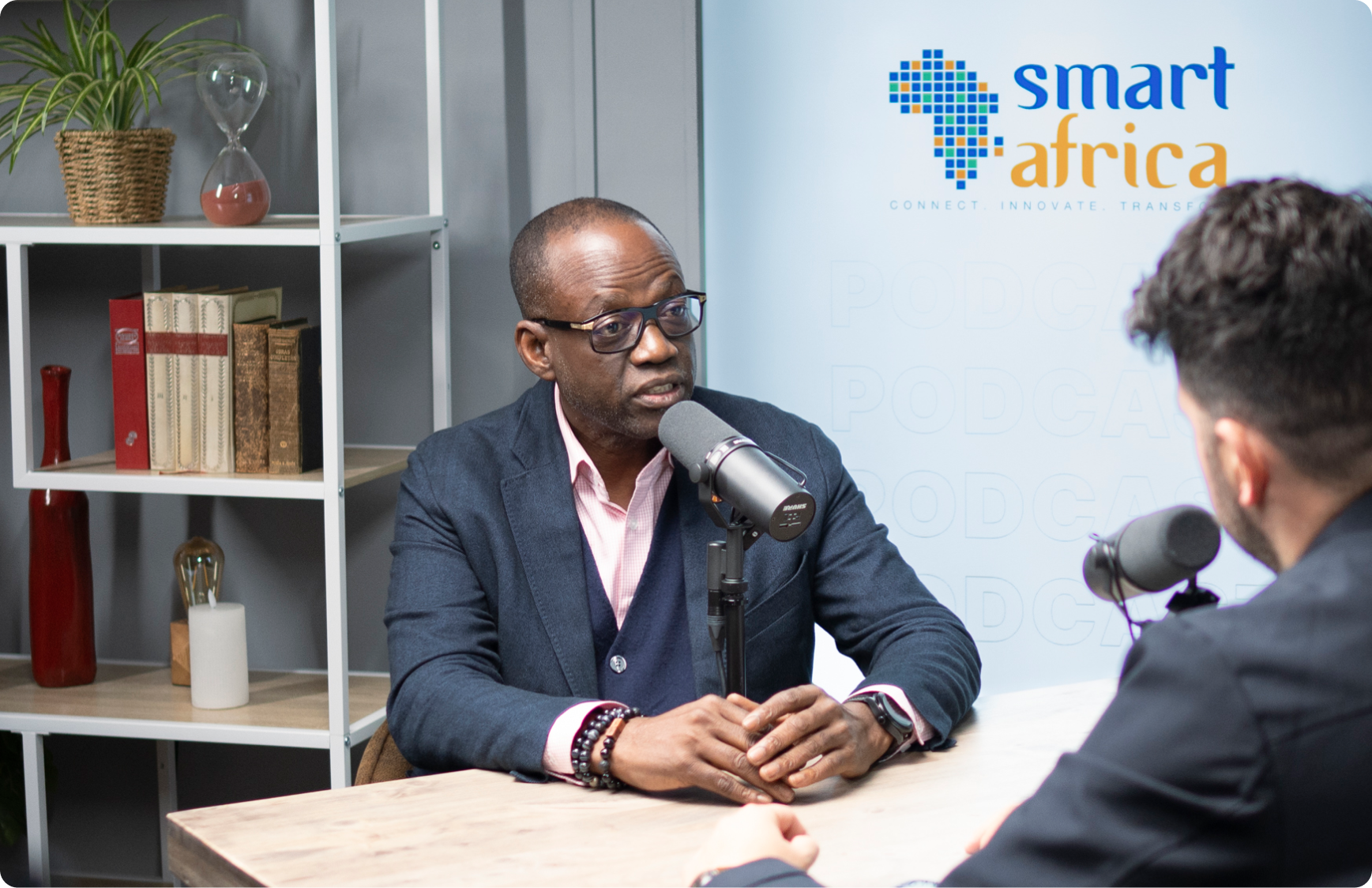EP.09 | PortaOne on Africa’s Telecom Shift: MVNO Models, Market Gaps, and IoT Opportunities
In this episode of the TechAfrica News Podcast, Chief Editor and Founder, Akim Benamara, engages in an interesting conversation with Roman Khalenkov, Chief Commercial Officer at PortaOne, to explore the shifting telecom terrain in Africa. With over 20 years of cross-disciplinary experience, Khalenkov brings a sharp, systems-level perspective to one of the continent’s most active, yet misunderstood, sectors.
Drawing from PortaOne’s work, Khalenkov unpacks how regulatory asymmetries, uneven market liberalisation, and outdated assumptions continue to shape telecom outcomes across African countries. How can MVNOs carve out space and thrive? And what does it take to move from basic infrastructure to intelligent, integrated service delivery?

- 00:30Mobile-First Africa and the Pace of Innovation
- 04:45Market Structure, MVNO Potential, and Regulatory Barriers
- 09:27Building Successful MVNOs: Models and Missteps
- 13:35Customer Experience and the Power of Integration
- 20:37IoT in Africa
- 26:48AI in Telecoms: Not Yet a Game Changer
Telecom’s Evolution: From Fax Machines to Smart Devices
Khalenkov opened with a wide-angle view: Africa’s telecom journey is uniquely positioned because it skipped legacy systems. Without the burden of outdated infrastructure like landlines or fax machines, many African markets moved straight into mobile-first services. This leapfrogging has created a distinct digital trajectory, less about catching up and more about charting a new course.
One Continent, Many Markets
Khalenkov was quick to caution against generalising Africa as a singular market. “It’s more than 50 different countries,” he said, pointing to stark contrasts in regulation, infrastructure, and market maturity. He cited South Africa as a case in point—one of the continent’s most liberalised telecom environments. With minimal barriers to entry, smaller service providers can thrive by targeting niche audiences. By contrast, markets with entrenched incumbents and heavy-handed regulation often lag behind in innovation and consumer choice.
MVNOs in Africa: Mixed Signals
However, regulation continues to shape what’s possible. In South Africa, for example, the pathway is relatively straightforward: strike a deal with a network operator, launch your service, and compete. In Nigeria, however, MVNO hopefuls must first secure costly licenses—and even then, ambiguity remains.
The Three MVNO Models That Work
Khalenkov identified three distinct business models that show potential for MVNOs in Africa:
- Franchise Replication: Inspired by global players like Lebara and Lycamobile, this model involves refining a successful MVNO blueprint and rolling it out across different countries. With over 50 markets to test, Africa is ideal for such regional expansion.
- High-Volume, Low-ARPU: With low ARPU across Africa, MVNOs can survive by focusing on high-volume use cases like IoT, where scale offsets thin margins
- Low-Volume, High-Margin Niches: Some MVNOs can target premium segments like coastal vessels needing data over satellite where fewer users pay more for specialised service.
Regardless of the model, he stressed the importance of strong market research and clear differentiation.
Smart Software, Smarter Scaling
Robust software is the backbone of modern telecoms. PortaOne enables operators to automate, streamline, and personalise everything from billing to CRM—ensuring systems work seamlessly together. Its flexible licensing options, from one-time purchases to SaaS models, help telcos manage costs while scaling efficiently. But as Khalenkov noted, “First, know your customers. Then, build the tech to serve them.”
IoT: Africa’s Next Leap
IoT is gaining traction across the continent. From oil fields to remote clinics, the use cases are growing. Khalenkov shared an example from Brazil, where cows wear sensors to flag calving risks—at just under $1 per month. Such models, he believes, can be adapted for African agriculture and logistics.
On AI: A Tool, Not a Revolution—Yet
While AI is making headlines, Khalenkov views it as a support function, not a game-changer. It’s helpful in automating workflows but hasn’t fundamentally reshaped telecoms. For African operators, the focus should remain on basics: affordability, quality, and knowing your users.
“I think it’s premature today to talk about AI as a game changer, specifically in telecoms. It will come there eventually, and we can speak about how I see where it will come first. But today, I simply don’t see that as more than just an additional piece of functionality. AI has potential as an application in different areas of doing business—call centres, customer communication, technical support. These are all spaces where you need structured processes, standard replies—it’s a lot of writing. That’s where AI can add real value.”
– Roman Khalenkov, Chief Commercial Officer, PortaOne

Roman Khalenkov is a seasoned executive with over two decades of experience in the telecommunications industry. His career spans leadership roles across sales, organizational management, product development, management consulting, and marketing strategy.
As Chief Commercial Officer at PortaOne, he continues to shape the future of digital infrastructure, bringing a rare blend of technical insight and commercial acumen to every conversation.




